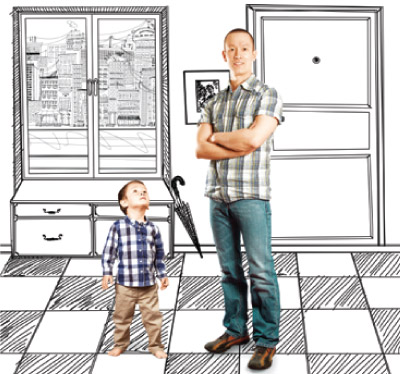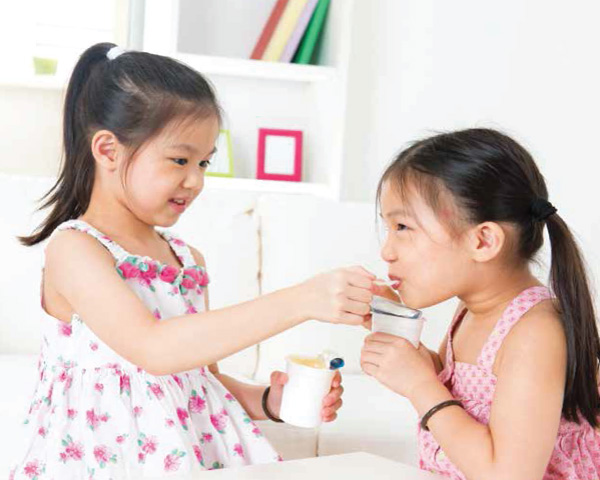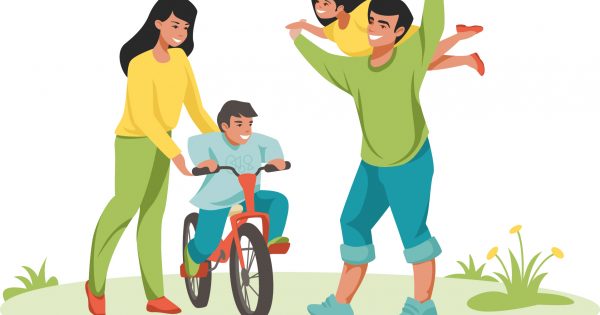Why should one share in the first place? Why teach children to share?
One main reason is that sharing builds relationships where there’s mutual acknowledgement which helps develop compassion, respect and understanding towards one another.
When you share something with someone, there is an automatic acknowledgement of that person’s existence and needs. This is usually interpreted as respect. When a person feels respected they are also more likely to reciprocate that respect, even in children. With respect, you also develop trust and gain a sense of security – two very important feelings that we need to preserve our well-being.
As such, sharing is one of the main aspects of a harmonious relationship, which is very adaptive, not just within the human race, but also within the animal kingdom. Here we observe that sharing is a very important skill and needed for survival. So how do we teach children to share? Ways to teach your child to share:
- Through repeated exposure of modelling
- Through consequences of actions
- By association
Model sharing behaviours in front of your children
Modelling employs a ‘monkey see, monkey do’ mechanism. Because you are an adult and children tend to imitate adults, your act of sharing is likely to be emulated by your child. Demonstrate sharing behaviours not just when playing or dining but in as many aspects of daily life as possible.

Reward acts of sharing
Apart from that, what you can do is ensure that any sharing behaviour from you or someone else is rewarded with a pleasant outcome that is socially appropriate of the society we live in. For example, when someone shares something with you, try expressing joy and gratitude towards that person. Do the same when your child shares something with you or praise them when they share anything with others.
Sharing joy
Similarly, this shows that sharing brings pleasant consequences to the person who is being generous. This teaches your child that generosity is something that is highly approved of which not only benefits the receiver, but the giver as well. You can reinforce the good feeling of compassion by teaching your children that bringing happiness to others is a great reward in itself because you can actually rejoice and share in their happiness.
The ripple effect
Your child learns to extract the happy moments in their lives at an early age through sharing and latching on to others’ happiness. You can also teach them that when others are happy with your generosity, they’ll be kind and nice to you, thus are more likely to protect you from harm because they treasure you.
Once sharing becomes frequent and good consequences are increasingly experienced, your child will associate these pleasant feelings whenever sharing is involved. This, in turn, motivates your child to share more often the toys, or other belongings they have.
A friend in need is a friend indeed
Another reason why “sharing is caring” is important is because we can’t always cure, but we can always care. Therefore, teaching your child to care more makes him/her a very valuable person.
As mentioned, sharing is a quality that creates bonds and fosters a sense of security as well as the notion of care. Therefore, it definitely falls within the idea of friendship. When your child shares well, you would not have to worry that he/she has no friends.
What you give, you get back
Some people argue that you may lose valuable things if you share too much. That’s not true: not when you share wisely and respectfully, as well as choose your friends carefully. If your child is taken advantage of by others, you can teach your child to learn from that mistake and then help them move on by reminding them to choose their friends more wisely.
Being a generous and sharing person is a positive attitude full of benefits and advantages. It brings security to the community and reduces jealousy, unhealthy competition or the need to steal.
Sharing brings harmony and it is an important basis for the development of the concept of fairness, care, and cooperation in human interaction. So teach your child to share for a better, harmonious future.
An educational collaboration with Malaysian Society of Clinical Psychology.







Comments